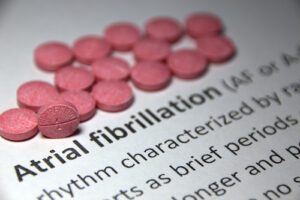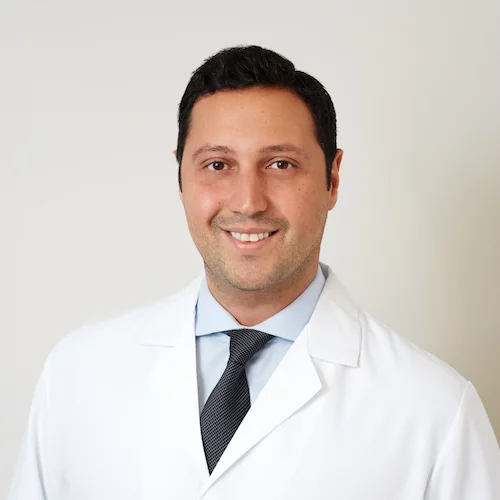Atrial fibrillation (AFib or AF) is a heart condition that causes an irregular or quivering heartbeat, known as arrhythmia. While the exact cause isn’t fully understood, AFib can affect anyone, though it is more common in adults over 65, men, and those with conditions like hypertension or atherosclerosis. Lifestyle factors such as excessive smoking or drinking may also trigger AFib.

Normally, a healthy heart beats between 60 and 100 times per minute at rest. During AFib, the heart rate becomes irregular and may spike above 100 beats per minute. This can cause dizziness, fatigue, shortness of breath, and heart palpitations—sudden feelings of your heart pounding or skipping beats. However, AFib may not produce noticeable symptoms, and a person may be unaware of their irregular heartbeat.
When to See an AFib Doctor in NYC
It’s important to consult a doctor if you notice:
- A sudden change in your heartbeat
- A consistently high (>100) or low (<60) heart rate, especially with other symptoms
- Chest pain
Early evaluation by a qualified AFib specialist can help prevent complications and guide appropriate AFib treatment in NYC.
How AFib is Diagnosed
Diagnosis typically involves:
Your AFib doctor in NYC will ask about:
Your doctor will ask you about feeling tired, having palpitations, and shortness of breath. They’ll also look for diabetes, heart disease, high blood pressure, thyroid problems, lung disease, and other conditions that might lead to atrial fibrillation. Family history is very important, because AFib can run in families. Finally, your doctor will ask you about things like smoking, drinking alcohol, and drinking caffeine that could affect your heart rhythm.
Physical Exam:
Your doctor will listen to your heart, check your pulse and blood pressure, and examine for valve issues, heart muscle problems, or signs of heart failure.
Tests and Procedures:
- EKG: Measures your heart’s electrical activity. Standard EKGs last about 20 seconds, but longer monitoring may be done with Holter or Event monitors to detect intermittent AFib.
- Stress Test: Evaluates your heart under physical or medication-induced stress to reveal conditions that may not appear at rest.
- Additional Tests: Chest X-ray, Cardiac Risk Panel, Echocardiography
Your doctor will use these results to design the most effective AFib treatment in NYC tailored to your needs.



